I have to say, this is a question I’ve been hearing for a long time since I got into the web development world. It’s a very common question, so please don’t feel like you’re alone when asking it. Many people are in your shoes and wonder the exact same thing.
This question is probably not just about coding, but about change in general. Deep down, the question might not be “Am I too old to learn coding?” but rather “Am I too old to change?” Let’s explore this together.
For those of you looking for a TLDR answer: No! You are not too old!
But I’m quite sure that doesn’t fully convince you—so let me explain.
My Late Start in Web Development
Here’s a short story about me, just so you know we might have been walking a similar path.
I’m not 100% a tech person. I didn’t study Computer Science or anything related when I finished school. I started working in a completely different field—sales in supermarket goods. At some point, I went on to take an MSc in Information Systems, a program designed for non-tech people. It had no coding lessons related to web development.
Advertisement
I discovered web development while browsing sites like Coursera and edX—and I loved it. I was in my mid-30s at the time, and I asked myself the same question: Am I too old to learn coding? Let me tell you what I found out.
By the way, I’ve been working as a web developer for the past 7 years. So yes—there are success stories out there, and yours can definitely be one of them too!
You’re Not Starting from Zero
This is 100% true—you’re not starting from zero. You might be thinking, “But I have no experience with programming. How can that be true?” Well, even if you’re new to coding, programming is about more than just writing code.
While you’ll focus on technical skills when learning for a job, that’s only part of what you’ll need to succeed in tech. Like any job, being a good developer also depends on other important skills, such as:
- Soft skills – How you communicate and work with your team.
- Product skills – How well you understand product requirements and how they should be built.
- People skills – How you interact with clients and stakeholders (the people asking for new features).
- Organizational skills – Coding isn’t just about typing code. It’s also about planning your work, breaking it into smaller tasks, staying focused, and delivering on time.
- Life balance skills – Avoiding burnout, keeping a healthy routine, getting enough rest—these all matter too.
You might think this sounds like a lot—but it’s all true. If you want to grow into a great developer, you’ll need to develop more than just technical knowledge.
Advertisement
From what I’ve seen, the best developers aren’t always the ones who know every new framework or advanced technique. They’re often the ones who are humble, reliable, and great team players.
So if you feel like you have nothing to offer—think again!
You already have experience, even if it’s not from the tech world.
- If you’ve been a taxi driver, you’ve learned how to stay patient and handle people in all situations.
- If you’re a mother, you’ve mastered multitasking and managing emotions—skills that come in handy at work too, especially with your managers!
- If you’ve been a gardener, you probably have a great eye for detail and know how to focus on repetitive tasks.
Every job teaches you something valuable.
So now that we’ve cleared that up — you are skilled, let’s talk about age…
Too Old Compared to What?
This is one of the most common — and most unrealistic — comparisons: “Am I too old?” Too old compared to who?
Are you 15? Then yes, you’re older than a 5-year-old.
Are you 65? Then sure, you’re older than someone who’s 30.
Advertisement
But here’s the real question: You know who you’re younger than?
The version of you a few years from now. I mean you can choose to start learning now—whether you’re in your teens, your 40s, or your 70s.
Or you can wait… and reach your 30s, 60s, or 90s having never started.
So what’s the difference between the version of you who starts learning and the one who doesn’t?
Time will pass either way (Even Gandalf doesn’t help here).

Both versions of you will grow older. But only one will arrive at that next age with a new skill—or even a new career.
So why not start your path right now? Of course, you could avoid it. You could push it away.
Advertisement
What’s the Alternative?
Well, there is one—and it’s a bit grim. I asked myself the same thing when I was wondering, “If I’m too old, what does that really mean?” The answer? You can just wait—wait until death comes sometime in the far future.
Don’t fight for your dreams! Just don’t!
Yes, do nothing. Don’t fight for your dreams. Don’t live the life you want. Don’t start learning and keep learning until you have no energy left. Just stay where you are and let time pass. Eventually, your journey will end.
Does that sound like something you would actually do? No, right? Because in reality, there is no real alternative. You either try — or you don’t. You could try and realize it’s not something you enjoy. Or you could find out it’s something that changes your life — because it turns out to be something you truly love doing.
The Learning Curve: Yes, It’s Real – and Beatable
Ok, now we’re getting somewhere. But is it hard? Will you have tough times? Will you make it through?
Well, I have to be honest — being a programmer is a great profession to be in. Some of its advantages are:
Advertisement
Continuous learning—which can sometimes feel like a disadvantage too.
Great compensation, especially if you’re working fully remote.
Remote flexibility—wherever your laptop goes, you can go.
But it’s not all sunshine. Like any career, programming has its own set of challenges. In my opinion, the two most challenging aspects are the steep learning curve and impostor syndrome.
You might want to reflect a bit before diving in and ask yourself: Is programming really for me? If you’re unsure, don’t worry—we’ve got you covered with a post comparing its pros and cons in more detail.
Advertisement
Let’s talk about the learning curve first. It’s steep. You will feel overwhelmed—sooner or later. That depends on your personality, energy, and life situation. If you’re going through a tough period, it may hit harder.
Why is it so steep? Because there’s so much to learn—and even while learning, you may catch yourself thinking, I don’t know enough. Let me stop you right there: you will never know everything. And that’s perfectly normal.
When I first started, that exact fear hit me hard—How will I ever learn it all? Then I came across a tweet that changed my perspective. It went something like this:
Beginner programmers are anxious because of their uncertainty. Senior programmers find peace in the fact that they’ll never be certain.
That moment was eye-opening for me. I realized: this is just the nature of the game. No one knows everything—and that’s OK. The only thing that truly matters is to show up, keep learning, and keep having fun.
If you can combine fun with perseverance, you won’t lose — I promise.
Advertisement
But even if you’ve got the patience and the motivation to start… is there still a chance this might not work out?
What’s the Worst That Could Happen?
Let’s be honest—there’s always a worst-case scenario. It might look different for each of you, but I’ll try to cover a few common ones that apply to many people starting this journey.
What If You Love Coding but Still Can’t Get a Job?
Yes, this is a tough one. I’ve seen it happen, and I’ve been there myself. Let me tell you how I dealt with it.
When I first started applying for jobs, all employers saw on my CV was: sales, sales, and more sales. No one trusted me because I had no experience. Classic case of “no experience, but no way to get it either.”
At that point, I saw two possible options:
Advertisement
- Get a non-paid internship
- Start building a portfolio with real projects (like websites for friends, local businesses, or anything you can find)
For me, the internship route worked. I landed a 6-month unpaid internship that offered the chance for paid work afterward. Financially, it was a tough decision. But I took it—and it changed everything.
Suddenly, my CV didn’t just say “sales.” It showed real web development experience. The next time I applied for a job, I imagine employers were thinking, “Well, if he managed to work in one company, maybe he can work for us too.”
The day I started that internship was a great one.
What If You Try Coding and Don’t Like It?
This is another real possibility. Not everything is for everyone. Maybe you love the thrill of the first lessons, but later you feel overwhelmed, bored, or just not that into it.
There are two ways this can go:
Advertisement
- You’re just hitting a tough spot and need to push through
- Or you’ve genuinely discovered that coding isn’t for you
If it’s the second one, that’s perfectly fine. You’ve now stopped wondering, “Am I too old to learn coding?”—because you’ve answered a more important question: “Is coding for me?”
And honestly, that’s a win too. Knowing what’s not for you is just as important as finding what is. Now you can move on to your next adventure, with no regrets—because you tried.
Ready to Start? Let’s Talk About Where to Begin
So, now that you’re (hopefully) feeling more confident—not because there’s nothing to fear, but because you’re ready to commit even with those fears—where do you start?
Well, I can only speak for web development, not every path in programming.
Think of coding like becoming a doctor—there are many different specializations, and no one can explain them all at once. Don’t like that comparison? Try this: imagine walking into a chocolate shop for the first time. How do you figure out what you like? Simple—you start tasting.
Advertisement
From my point of view, the fastest route to getting a developer job is through frontend development.
In case you don’t know, a frontend developer is the person who builds what users see and interact with on a website. I believe it’s the quickest path because you can learn a few core building blocks and start seeing results fast. You’ll be able to create things, show them to potential employers, and feel a sense of progress early on.
This means faster feedback, less overwhelm, and a shorter path to your first job.

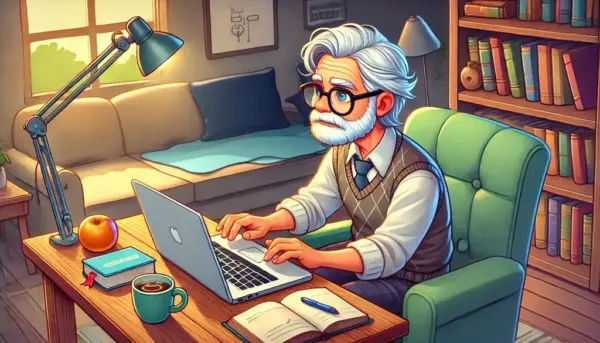

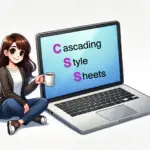


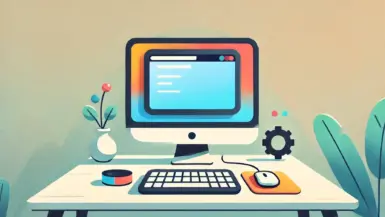
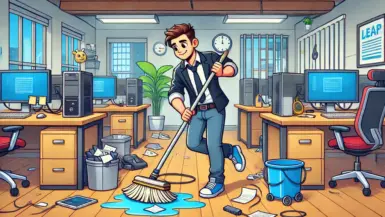
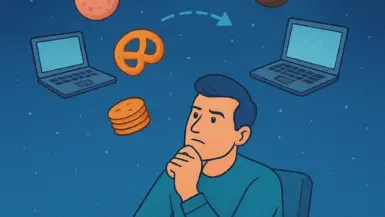
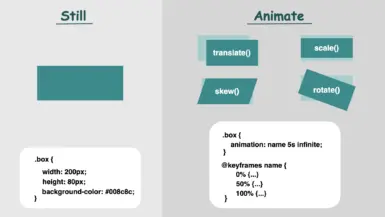
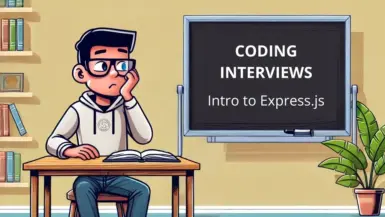
Leave a reply